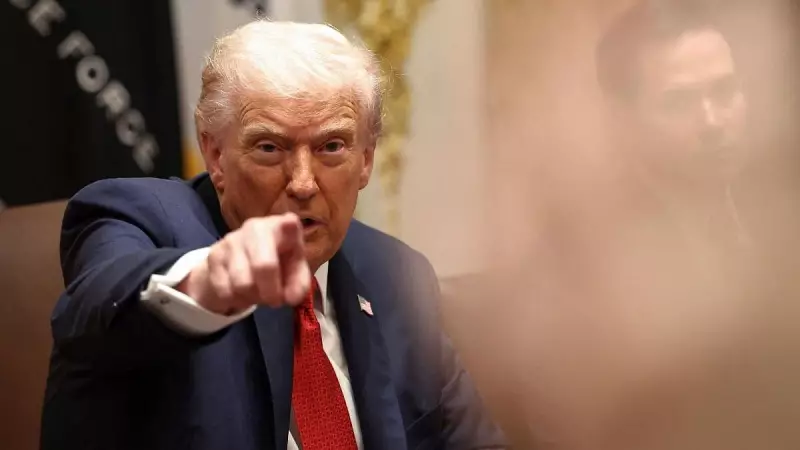
In the turbulent landscape of international politics, a new phenomenon is emerging that challenges conventional diplomatic wisdom. Donald Trump's approach to global affairs, which some analysts are calling 'weaponised peace,' represents a radical departure from traditional foreign policy frameworks.
The Art of Strategic Disruption
Trump's methodology involves using peace negotiations and diplomatic overtures as strategic weapons rather than genuine conflict resolution tools. This approach creates uncertainty among allies and adversaries alike, forcing nations to constantly recalibrate their positions on the global stage.
The former president's recent statements about potentially resolving the Ukraine conflict within 24 hours if re-elected exemplify this strategy. Rather than being seen as a sincere peace proposal, many interpret this as a tactical move to undermine current diplomatic efforts and position himself as the only leader capable of achieving what others cannot.
NATO and Alliance Dynamics
Trump's relationship with NATO showcases another dimension of weaponised peace. His threats to withdraw from the alliance or encourage Russian aggression against member states who don't meet defence spending targets represent a fundamental reimagining of collective security.
- Creating leverage through uncertainty
- Rewriting alliance terms unilaterally
- Using security guarantees as bargaining chips
- Forcing partners to demonstrate their value
The Domestic Political Calculus
This diplomatic strategy serves multiple domestic political purposes. It reinforces Trump's image as a dealmaker who can achieve what career diplomats cannot. It also appeals to his base's skepticism of international institutions and foreign entanglements while positioning him as a peace candidate despite his confrontational rhetoric.
The weaponisation of peace allows Trump to maintain an aggressive political posture while simultaneously claiming the moral high ground of seeking conflict resolution. This duality makes him particularly challenging for conventional politicians to counter effectively.
Global Implications and Reactions
World leaders are grappling with how to respond to this unconventional approach. Some see it as dangerous instability, while others recognize it as a new form of realpolitik that requires adaptation rather than outright rejection.
- European allies are developing contingency plans
- Adversaries are recalculating their strategic positions
- International institutions are preparing for potential disruption
- Global markets are factoring in new political uncertainties
The Future of International Relations
Whether Trump returns to power or not, his concept of weaponised peace has already altered the global diplomatic landscape. Other leaders may adopt elements of this approach, and the very nature of alliance relationships may be permanently transformed.
The traditional rules of diplomacy are being rewritten, and the international community must decide whether to resist this change or adapt to a new era where peace itself becomes another tool in the geopolitical arsenal.
As the world watches Trump's political maneuvers with a mixture of apprehension and fascination, one thing becomes clear: the old certainties of international relations are fading, making way for a more unpredictable and potentially volatile global order.






